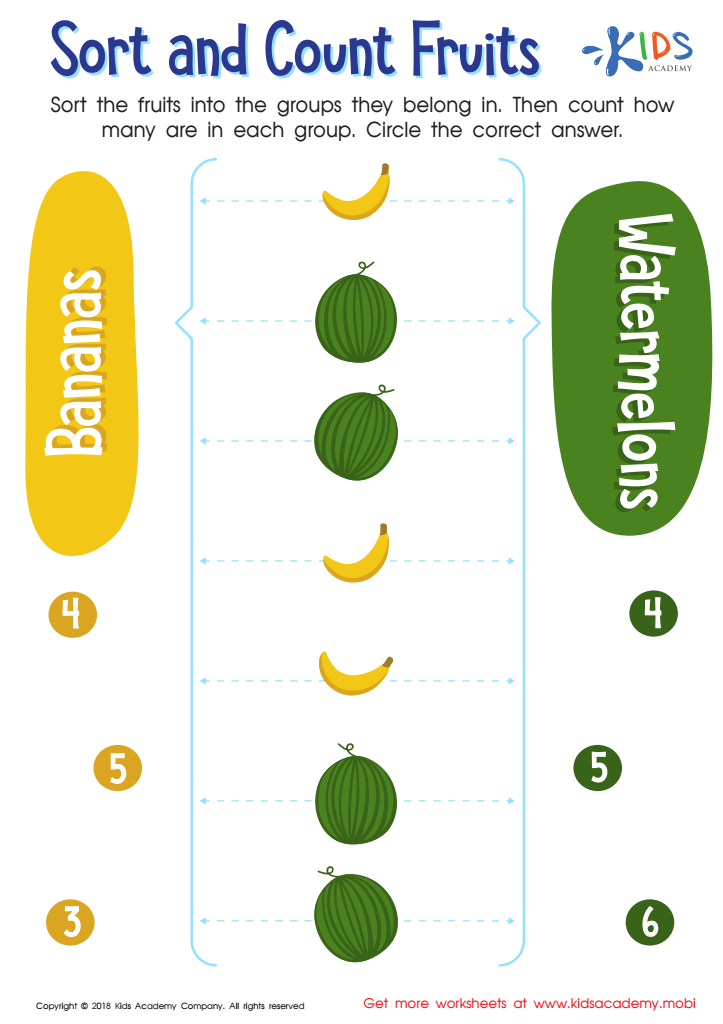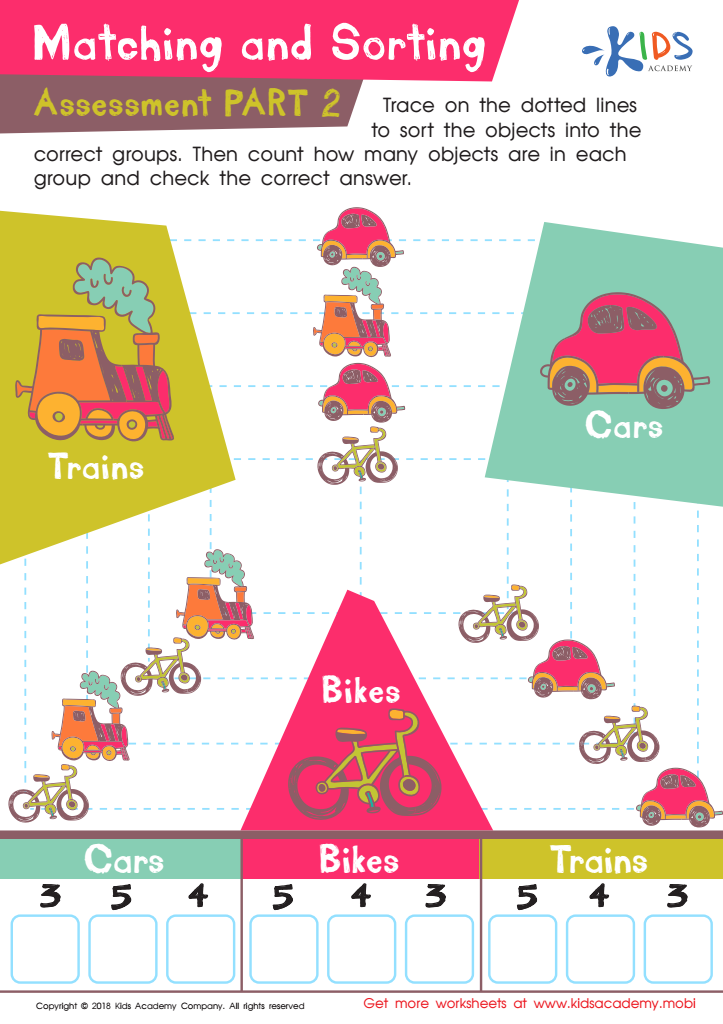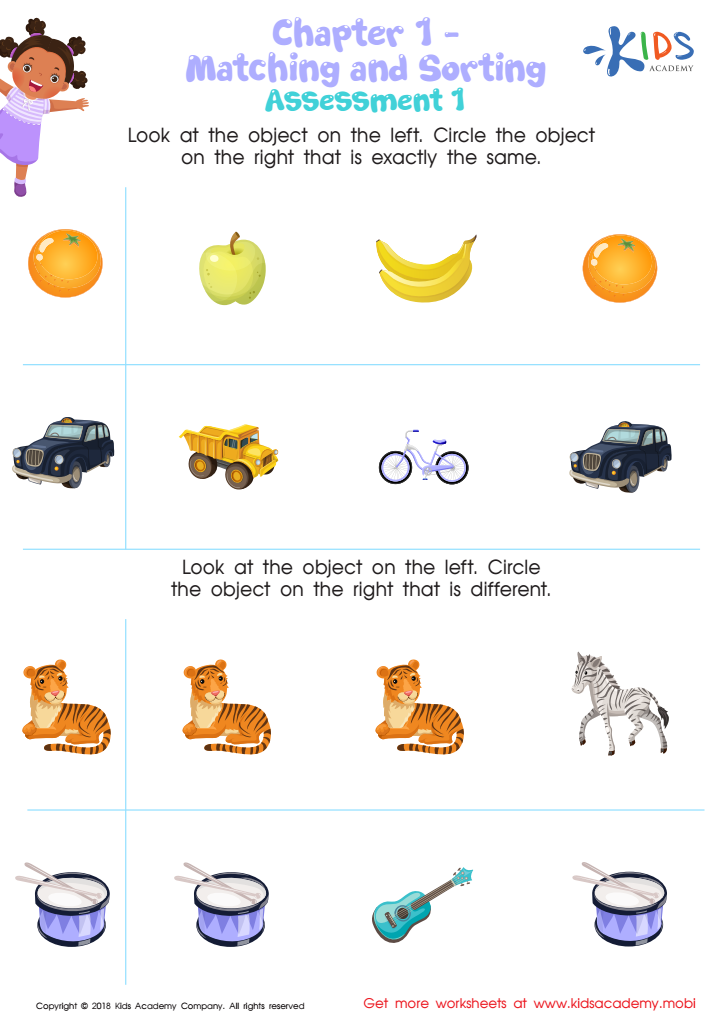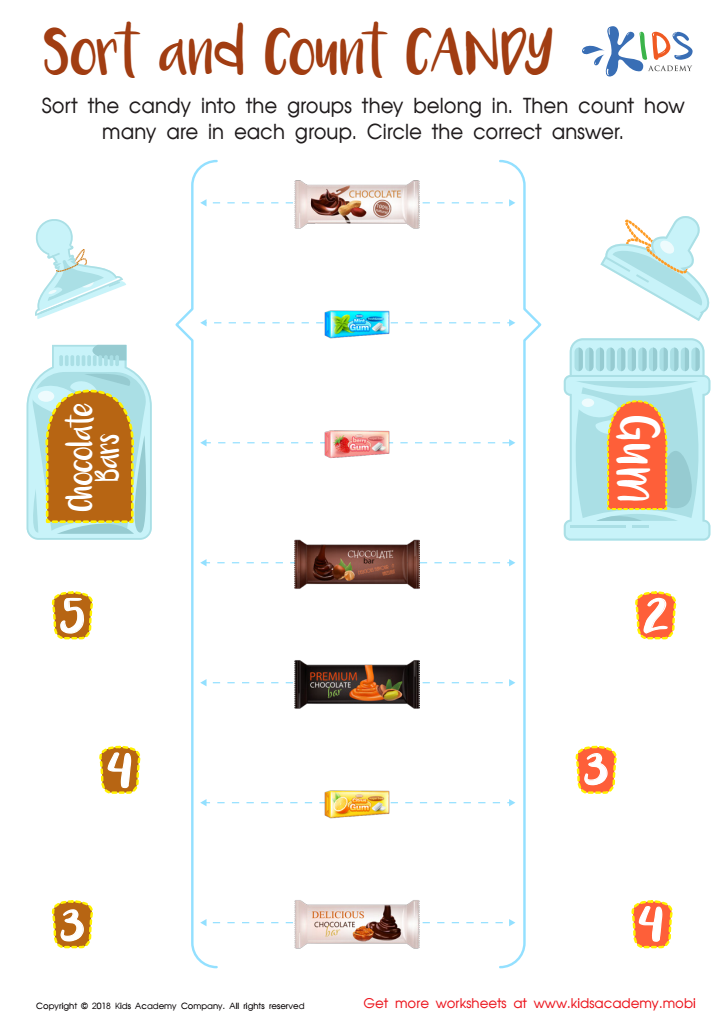Basic Math Skills Sorting Worksheets for Ages 4-7
4 filtered results
-
From - To
Boost foundational math skills with our engaging sorting worksheets designed for ages 4-7. These printable activities help children recognize, categorize, and organize various objects, enhancing their cognitive abilities and preparing them for more advanced concepts. Ideal for preschool to early elementary students, these worksheets make learning fun and interactive. From sorting shapes and colors to grouping sizes, each worksheet is crafted to align with educational standards, fostering critical thinking and problem-solving. Perfect for both classroom use and at-home practice, our Basic Math Skills Sorting Worksheets set your child on a path to math success.


Sort and Count Fruits Worksheet


Matching and Sorting for Kindergarten: Assessment 2 Worksheet


Matching and Sorting for Preschool: Assessment 1 Worksheet


Sort and Count Candy Worksheet
Basic Math Skills Sorting activities for ages 4-7 are fundamental for children's cognitive and academic development. Early sorting tasks promote critical thinking and problem-solving skills by encouraging children to categorize objects based on characteristics like shape, color, size, or quantity. This foundational activity enhances their ability to recognize patterns, a crucial step toward understanding more complex mathematical concepts such as algebra and geometry.
In addition, sorting provides children with hands-on, concrete experiences that make abstract math concepts more accessible. Through sorting, children also develop fine motor skills as they manipulate objects, which is essential for writing and other classroom tasks. These activities foster language development too, as children learn to describe their sorting categories and explain their thought processes.
From a social perspective, sorting games and activities often involve cooperative play, teaching children important social skills such as sharing, negotiation, and teamwork. When children sort together, they learn to articulate their reasoning and listen to others' viewpoints, enhancing their communication skills.
By integrating sorting activities into early childhood education, parents and teachers can build a solid math foundation, creating lifelong learners who are prepared for future academic challenges. Ignoring these skills can result in gaps in foundational knowledge, potentially causing difficulties in later, more advanced math learning stages.
 Assign to My Students
Assign to My Students
















